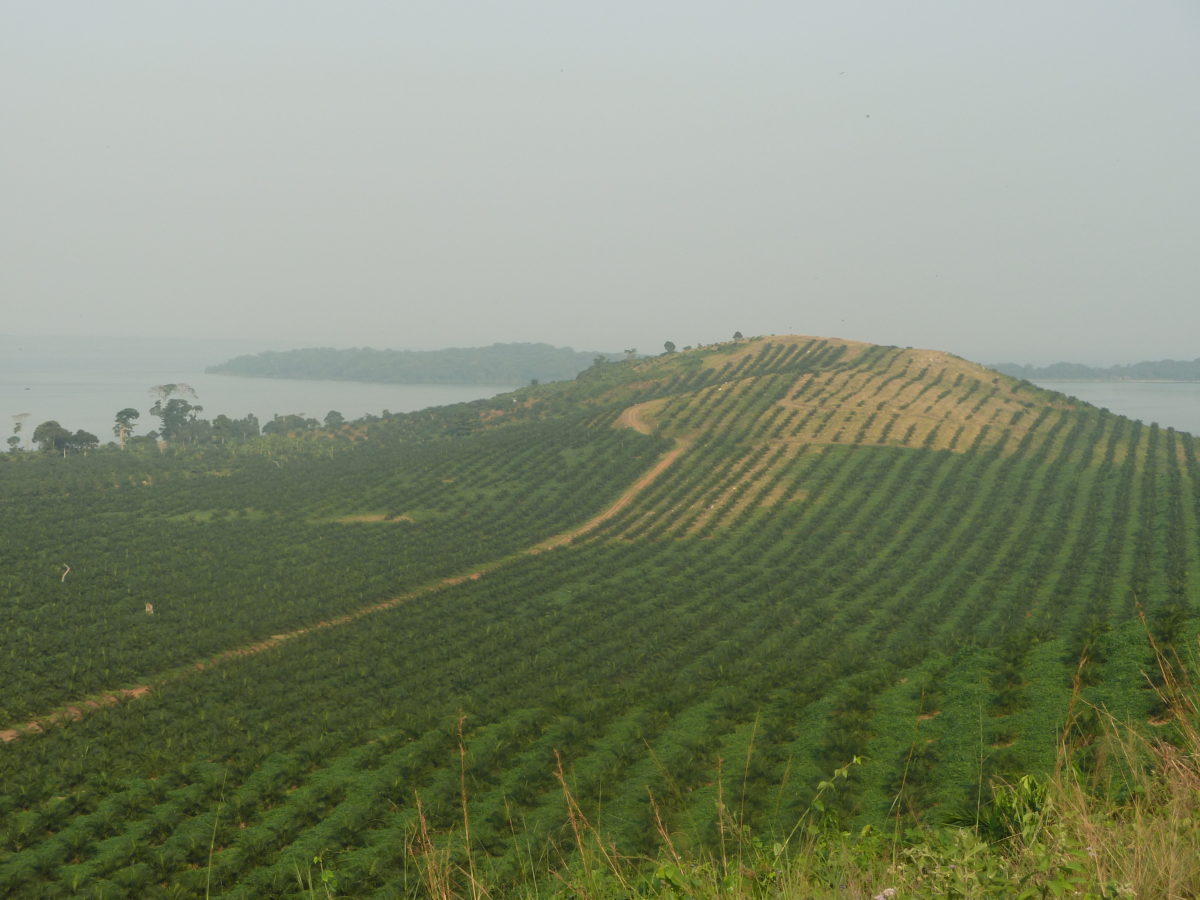
Ugandan farmers sue over palm oil land grab
Farmers in Uganda evicted by oil palm plantations filed a lawsuit today against a joint venture co-owned by palm oil giant Wilmar International. The farmers, with the support of Friends of the Earth Uganda, are demanding restitution and fair compensation for damages, three years after their land was taken for plantation development.
The palm oil project, in the Kalangala Islands of Lake Victoria, is being carried out by Oil Palm Uganda Limited, a subsidiary of Bidco Uganda, which itself is a joint venture between Wilmar International, Josovina Commodities and Kenya-based Bidco Oil Refineries. Wilmar International holds at least 39 percent of the shares of the joint venture and is providing technical expertise for the project. Additional financing for the project comes from the Ugandan government and the UN International Fund for Agricultural Development.
The lawsuit comes after the NAPE/Friends of the Earth Uganda made various attempts to resolve the land conflict through stakeholder dialogue and by initiating a commission to investigate the problems and provide recommendations. The filing is supported by Friends of the Earth Uganda, Friends of the Earth Europe and Friends of the Earth International.
| A bulldozer belonging to Oil Palm Uganda Limited clears land the farmers once called home. |
When OPUL’s palm oil operations began in the Kalangala Islands in 2011, the initial land concession and clearing left at least one hundred smallholder farmers landless. Some of the displaced smallholders received minimal compensation for their lands, while others received none.
Ugandan farmer John Muyiisa, one of the plaintiffs, said, “When I lost that land, I did not only lose my livelihood, I also lost my pension and a secured income for my children and grandchildren. I did all I could to get the land back — I even went to the office of the president of Uganda. Now I am looking to the court to provide us with justice.”
Frank Muramui, director Friends of the Earth Uganda, said, “Wilmar and the other palm oil companies are aware of the fact that communities have been displaced but have to date not been able to resolve the problems. This project was sold to the residents of Kalangala with promises of employment and a brighter future. But they were not fairly compensated for the loss of their livelihoods, and now without access to land face a daily struggle to get by.”
Wilmar International receives financing from several U.S. and European banks and financiers. The case is one of several that Friends of the Earth groups in Europe and the United States have regularly brought to the attention of Wilmar International and the company’s U.S. and European financiers.
Despite voluntary environmental and social governance commitments from Wilmar International and its financiers, the conglomerate’s palm oil projects continue to contribute to human rights violations in Uganda and other palm-oil producing countries.
Friends of the Earth International food sovereignty program coordinator Kirtana Chandrasekaran said, “The experience of communities in Kalangala echoes that of communities all over the world. Their rights to food, housing and a clean environment are being violated by corporations pursuing profits from large plantations.”
| Farmers gather with Friends of the Earth Uganda to discuss the landgrab and legal options. |
This case further demonstrates that governments in producer countries, as well as consumer countries, should implement legal frameworks to make transnational corporations accountable for the human rights impacts caused by their operations.
“This case clearly shows that we cannot expect companies and financiers to regulate themselves,” said Anne van Schaik of Friends of the Earth Europe.
Following the filing of the case, John Muyiisa and the other plaintiffs must await a hearing date. If the judge sustains their complaint, over 100 farmers will receive compensation and the restitution of their lands — setting a strong precedent for such cases in Uganda.
To offer financial support to the farmers to pursue their case, consider making a donation here.
Image, top: Oil palm trees in the Kalangala Islands, where there once were forests and farms. All photos from Friends of the Earth England, Wales and Northern Ireland
Related Posts
Ways to Support Our Work

Read Latest News
Stay informed and inspired. Read our latest press releases to see how we’re making a difference for the planet.

See Our Impact
See the real wins your support made possible. Read about the campaign wins we’ve fought for and won together.

Donate Today
Help power change. It takes support from environmental champions like you to build a more healthy and just world.